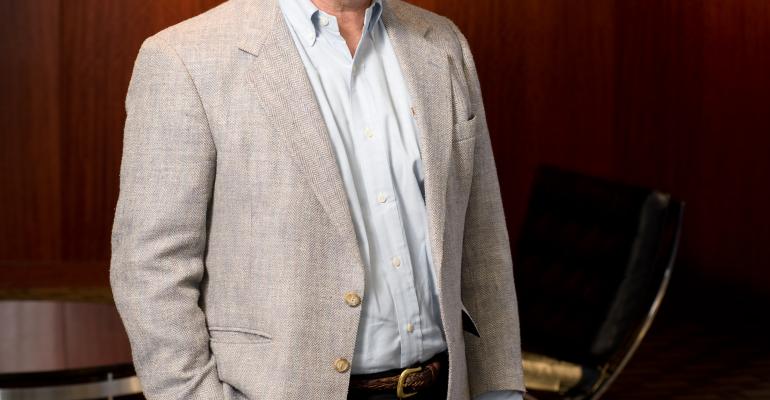While moderating a remarketing panel talk at an auto conference in New York, I noted that some of the smartest people in the industry work on the used-car side.
That’s ironic because the notion was, and to some extent still is, that used-car operations are less important than selling shiny new cars.
But tell that to dealers who invest heavily in their pre-owned vehicle business. That group certainly includes publicly owned megadealers.
Asbury Automotive just announced plans to open two stand-alone used-car stores in Florida. It’s easy to see why Asbury wants to do that. Dealers make more money off used cars than the ones that just arrived from the factory.
“Over the last three years, we have grown used-vehicle retail-unit sales in excess of 55% and grown used-vehicle retail-gross profit by close to 35%,” says Asbury President and CEO Craig Monaghan.
Another public dealership group, Sonic, plans to launch stand-alone used-car operations this year. And a couple of years ago, publicly owned Lithia Motors stepped up its already active used-car operations.
“We are really heavy in the used-car business and expanding every piece of that at every store,” Sid DeBoer, then head of the company he founded, told me in 2012. His son Bryan succeeded him as CEO last year. Sid studied economics at Stanford.
Monaghan, a former General Motors engineer turned business executive, says Asbury methodically approaches the business of selling cars with previous owners.
“We remain excited about the opportunities we see in the used-vehicle market and believe there is an opportunity now for us to take our demonstrated used-vehicle retailing talent, technology and processes and expand into a stand-alone used vehicle-retailing model,” he says.
The technology he speaks of centers on using inventory-management software to track local supply and demand in real time. It particularly helps dealers decide what used cars to stock and what to charge for them.
The goal is to turn, turn, turn the inventory. Such a systematic approach replaces old-fashioned used-car managers relying on gut instinct that could cause bad stocking and pricing decisions resulting in cars sitting on the lot collecting dust.
It’s an amazing transformation. Dealership used-car offices don’t even look the same, Juan Flores, operations director for AutoTrader.com’s Trade-In Marketplace, says during that remarketing panel discussion.
“You go into a used-car office today, and it looks like Bloomberg,” he says, referring to desktop computer screens flashing financial data at major businesses.
In an unusual program illustrating the importance of the pre-owned-vehicle industry, 30-store Victory Automotive Group in Michigan grooms employees with upper-management potential by establishing satellite used-car lots for them to run.
"We train them there and then move them up," says Rodger Olson, a 13-year auto engineer who switched careers, studied management at University of Michigan and became Victory's chief operating officer.
AutoNation CEO Mike Jackson doesn’t make many wrong moves. But one of the things he did in 1999 when he took the reins of the country’s largest dealership chain was to close its stand-alone used-car stores.
He said they were competing too much with AutoNation’s franchised dealerships. He also cited inventory-acquisition problems that a big pre-owned-only operation faced. But as CarMax rather smugly noted at the time, its used-car superstores did just fine. They still are. Perhaps Jackson wishes he had that call back.
It’s not just dealers who show heightened interest in used cars; it’s also automakers. Virtually all of them have remarketing departments run by bright and often highly educated people.
Among them is Steve Nicholson, who was part of that panel discussion I moderated. He’s Mercedes-Benz U.S.A.’s remarketing manager and holds a B.A. in history from the University of Michigan and an MBA from Northwood University.
Franchised new-car dealers always have sold used cars, but they amped it up when the recession hit in 2008. Their results have been impressive.
Until a few years ago, franchised dealers and independent used-car dealers were neck and neck, each roughly selling about 15 million used cars a year. Then franchised dealers took a slight lead. Now, they’re way ahead.
In 2013, they sold 15.7 million used vehicles, compared with independent dealers’ 14.3 million.
Expect the lead to increase as major dealership groups run by CEOs with MBAs put their minds to selling what once was the purview of stereotypical cigar-chomping, loudly dressed fast talkers. Executives in pinstripe suits have elbowed out used-car salesmen in plaid sports coats.
Greg Miller heads Larry H. Miller Companies, an enterprise that is a perennial member of the WardsAuto Megadealer 100, as are all of the aforementioned major dealer groups.
Miller told me selling used cars is “the funnest part of the auto business.” And, he added, it’s one of the most profitable.

